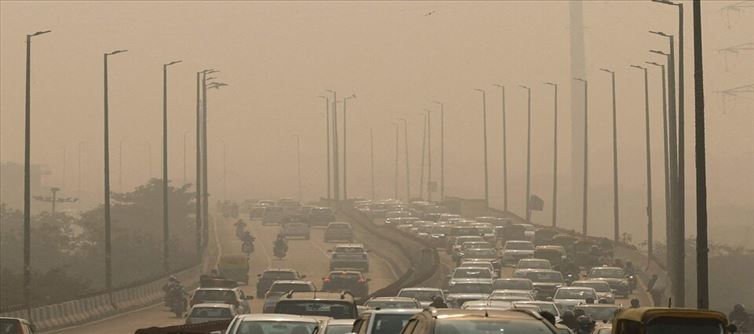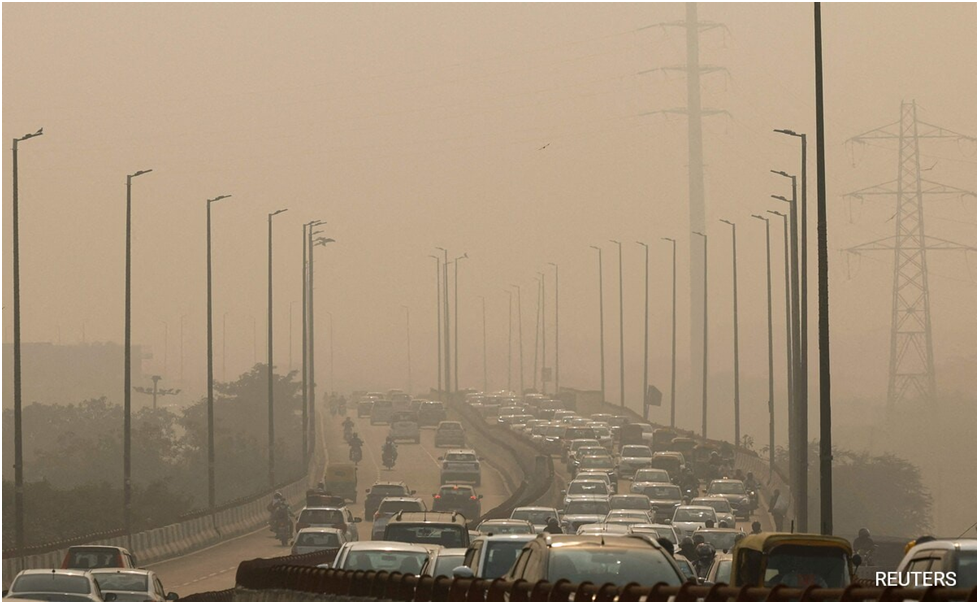

Following "highly unfavourable meteorological conditions, including calm winds and very low mixing height," the Commission for air Quality Management announced monday afternoon that GRAP-III recommendations have been reinstated throughout delhi and the national capital region.
Diesel-powered commercial vehicles would not be allowed to enter Delhi-NCR schools under GRAP-III, and all schools must transition to a hybrid class mode for children up to Class V.
With a hybrid class mode, parents and students can select between in-person and online instruction based on the availability of home internet and computer infrastructure.Except for those employed for emergencies or to deliver critical services, goods trucks with engines below the BS-IV certification cannot operate, and goods carriers registered outside the national capital are prohibited from entering the city until further notice if their engine is below the BS-IV mark.
The central government is expected to follow suit for its offices in the nation's capital, and government offices in delhi and the surrounding states would stagger their working hours.
The city had an AQI of 366 at 2:30 pm, which is at the upper end of the "very poor" range. Compared to seven days earlier, when it was 233 and categorised as "moderate," this is a significant increase.
Additionally, Delhi's AQI was at 211 three days prior.The supreme court granted the CAQM permission on december 5 to loosen anti-pollution regulations from GRAP-IV, the most stringent of four stages of a Graded Response Action Plan designed to address the worsening air pollution in the national capital area, due to the improvement in air quality.
Medical experts issued yearly health warnings due to the persistently "severe" and "very poor" air quality in delhi and the surrounding areas last month, which sparked a wave of cases before the supreme court for guidance from the government..
A top court bench consisting of Justices Abhay S. Oka and Augustine George Masih has held multiple hearings on the yearly air quality crisis over the past few weeks, examining everything from field fires—where farmers burn agricultural waste—to ineffectual bans on polluting automobiles.
In certain instances, the court chastised the authorities for breaking the law; for instance, when GRAP-IV was in force, the court blasted officials for continuing to permit building operations that were not necessary at the time and were therefore prohibited. The delhi government was also questioned by the court for failing to prevent trucks bringing non-essential items from entering the city.The delhi administration and the central government panel, the CAQM, were also questioned by the court for failing to impose more stringent anti-pollution measures when the AQI reached the 300-mark.
Following the post-Diwali deterioration, which is once again a yearly and predicted worsening of the AQI after many in the city disobeyed the ban on firecrackers, the supreme court, which hears cases and complains about Delhi's air quality every year, has been as scathing this year.
The court criticised the government and police in a previous session, stating that "no religion encourages any activity which creates pollution" and lamenting the exploding firecrackers.




 click and follow Indiaherald WhatsApp channel
click and follow Indiaherald WhatsApp channel